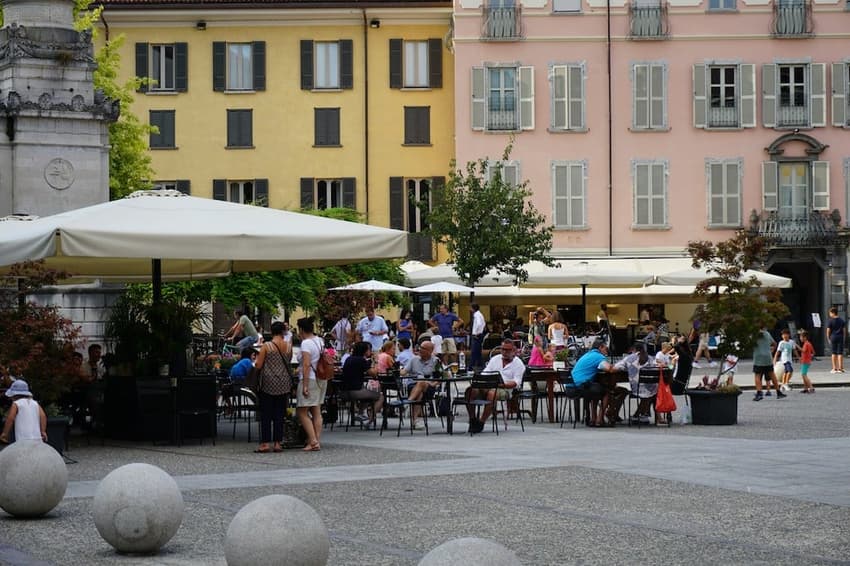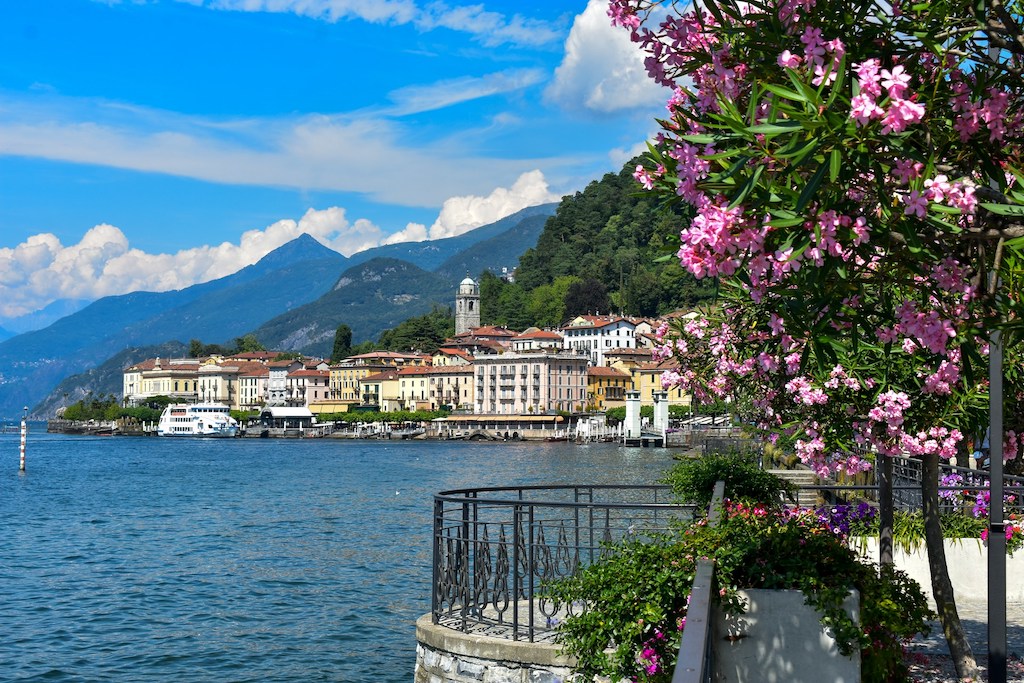FACT CHECK: Is Como really bringing in a Venice-style ‘tourist tax’?

As Venice prepares to trial a €5 fee for daytrippers, international news outlets report that Lake Como now plans to do the same. Are these rumours true?
'Lake Como is adopting a ‘tourist fee’ like Venice – but is it justified?' asked UK outlet Metro on Thursday.
'Lake Como to introduce daytripper fee to curb visitor numbers,' ran a headline on English-language site Euronews the following day.
'After Venice, this popular Italian destination plans to charge a tourist fee,' declared Indian outlet The Economic Times on Sunday.
Over the past couple of weeks, multiple international news outlets have run a series of stories breathlessly announcing the imminent arrival of a Venice-style tourist entry fee on Italy's most famous lake - but are the reports based in fact?
Venice is set to trial its long-awaited €5 charge for day-trippers for the first time this week, beginning on Italy's Liberation Day weekend from Thursday, April 25th.
City authorities say the charge, which will be charged over 29 of the busiest tourist days in 2024, is designed to crack down on 'hit and run' tourism, and there was much excitement in international media at the suggestion Como was set to follow suit.
READ ALSO: EXPLAINED: How will Venice’s ‘tourist tax’ work?
On closer inspection, however, the reports seem to originate from a single and fairly non-committal quote that has been blown out of proportion.
The source is an interview Como Mayor Alessandro Rapinese gave to UK-based newspaper The Times earlier this month - and for amount of hype the story has generated, the interview itself is sparse on details.
"We are already discussing the idea," Rapinese tells The Times, when asked about a €5 charge. "Revolutions begin with concrete measures and we are ready for this long journey."

Residents say Italy's scenic Lake Como is becoming overrun with tourists. Photo by Jesper Brouwers on Unsplash
Rapinese then goes on to list a series of proposals that have nothing to do with the fee - which never comes up again - including introducing a €50 charge for tour coaches and harvesting visitors' phone and credit card data to implement traffic-calming measures.
According to Italian news site Fanpage, a daytripper charge is unpopular with other members of the town's administration, with the city's former chief engineer describing it as a "limitation on the freedom to experience the beauty of our areas".
READ ALSO: What’s the difference between Italy’s city taxes and new ‘tourist tax’?
Venice's city authorities have faced their own share of criticism for the fee, with the centre-left opposition slamming the charge as a money-making scheme that is of "no use in any way to manage tourist flows."
The measure "unfortunately goes in the direction of making [Venice] a kind of large theme park rather than a city in which to live and build a future," argued Democratic Party MP Rachele Scarpa last September.
The lagoon's inhabitants have also raised questions about where the funds will go.
“What happens to all this money? Will it be spent on improving Venice’s public transportation? Will it remain on the mainland? There has been no mention of what will happen," local resident Gillian Longworth McGuire asked The Local.
At this point, it seems unlikely that Como's city council will trial a similar tourist tax before seeing how the scheme plays out in Venice - and it's at the least premature to announce that such a charge is imminent.
Comments
See Also
'Lake Como is adopting a ‘tourist fee’ like Venice – but is it justified?' asked UK outlet Metro on Thursday.
'Lake Como to introduce daytripper fee to curb visitor numbers,' ran a headline on English-language site Euronews the following day.
'After Venice, this popular Italian destination plans to charge a tourist fee,' declared Indian outlet The Economic Times on Sunday.
Over the past couple of weeks, multiple international news outlets have run a series of stories breathlessly announcing the imminent arrival of a Venice-style tourist entry fee on Italy's most famous lake - but are the reports based in fact?
Venice is set to trial its long-awaited €5 charge for day-trippers for the first time this week, beginning on Italy's Liberation Day weekend from Thursday, April 25th.
City authorities say the charge, which will be charged over 29 of the busiest tourist days in 2024, is designed to crack down on 'hit and run' tourism, and there was much excitement in international media at the suggestion Como was set to follow suit.
READ ALSO: EXPLAINED: How will Venice’s ‘tourist tax’ work?
On closer inspection, however, the reports seem to originate from a single and fairly non-committal quote that has been blown out of proportion.
The source is an interview Como Mayor Alessandro Rapinese gave to UK-based newspaper The Times earlier this month - and for amount of hype the story has generated, the interview itself is sparse on details.
"We are already discussing the idea," Rapinese tells The Times, when asked about a €5 charge. "Revolutions begin with concrete measures and we are ready for this long journey."

Rapinese then goes on to list a series of proposals that have nothing to do with the fee - which never comes up again - including introducing a €50 charge for tour coaches and harvesting visitors' phone and credit card data to implement traffic-calming measures.
According to Italian news site Fanpage, a daytripper charge is unpopular with other members of the town's administration, with the city's former chief engineer describing it as a "limitation on the freedom to experience the beauty of our areas".
READ ALSO: What’s the difference between Italy’s city taxes and new ‘tourist tax’?
Venice's city authorities have faced their own share of criticism for the fee, with the centre-left opposition slamming the charge as a money-making scheme that is of "no use in any way to manage tourist flows."
The measure "unfortunately goes in the direction of making [Venice] a kind of large theme park rather than a city in which to live and build a future," argued Democratic Party MP Rachele Scarpa last September.
The lagoon's inhabitants have also raised questions about where the funds will go.
“What happens to all this money? Will it be spent on improving Venice’s public transportation? Will it remain on the mainland? There has been no mention of what will happen," local resident Gillian Longworth McGuire asked The Local.
At this point, it seems unlikely that Como's city council will trial a similar tourist tax before seeing how the scheme plays out in Venice - and it's at the least premature to announce that such a charge is imminent.
Join the conversation in our comments section below. Share your own views and experience and if you have a question or suggestion for our journalists then email us at [email protected].
Please keep comments civil, constructive and on topic – and make sure to read our terms of use before getting involved.
Please log in here to leave a comment.